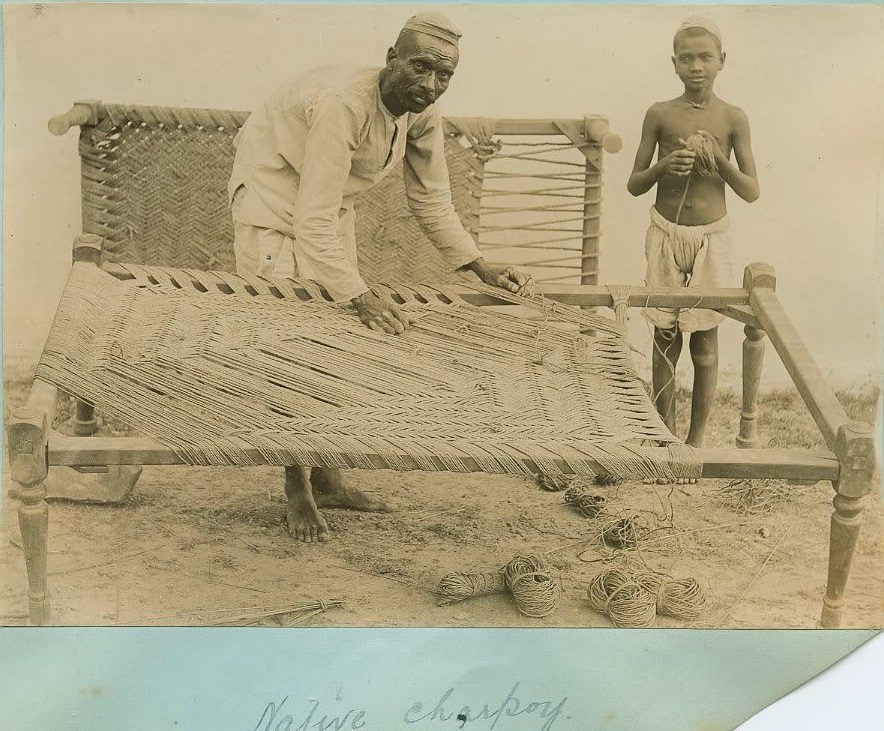FWP:
SETS == PARALLELISM; REPETITION
The lover's bedding has suffered sorely from the 'agitation' of his terrible nights: he has twisted and pummelled it and beaten it into submission. The 'legacy' of those nights is thus the dire condition of the bedding-- the bedding has been so maltreated that it can scarcely even do its job; it finds his head an 'affliction' and his body a 'burden'.
The second line is particularly rhythmic and effective; it not only falls into two metrically and semantically parallel halves, but also follows the metrical feet in its word stresses.
Compare the very different attitude of the bedding toward
the lover in the next verse, {194,2}. Another verse
that even more oddly combines a vaqf and bedding: {15,11}.
ABOUT bistar : 'Bedding' is the best translation, since it's such a broad term. But in traditional South Asia, it particularly referred to something like a bedroll that was more or less portable when rolled up; when taking long trips, respectable travelers brought along their own bedding. In {14,7}, the lover has apparently been carrying such a bedroll around with him, hoping for a chance to unroll it. Other occurrences, like most of the uses in this ghazal, are more abstract: {15,11}; {56,3}; {190,6}.
A bedroll like this was readily laid on top of an almost equally portable bed, a 'charpoy' [chaarpaa))ii]; in fact Hobson-Jobson approvingly quotes Ibn Battuta (writing c.1350) on the charpoy: 'The beds in India are very light. A single man can carry one, and every traveller should have his own bed, which his slave carries about on his head. The bed consists of four conical legs, on which four staves are laid; between they plait a sort of ribbon of silk or cotton. When you lie on it you need nothing else to render the bed sufficiently elastic.' This description emphasizes the ability of the charpai to obviate the need for (much) bedding-- so that the charpai itself, if elegantly strung, could replace bedding. A great deal could be said about the convenience, variety, and versatility of charpais; they continue to be commonly used for sleeping and sitting even today.
In his whole divan, Ghalib never uses the word chaarpaa))ii . But unlike much of the more exotic ghazal imagery, we can be sure charpais were ubiquitous in his real life, and that in the winter they probably had 'bedding' unrolled atop them for extra warmth. People might also sleep on platforms [ta;xt], or in the kind of heavy four-poster beds introduced by the British. But the bistar and the chaarpaa))ii were woven into the fabric of everyday life.
This is an ordinary, utilitarian charpai, nothing fancy, in the process of being strung (or re-strung)::

Nazm:
From my writhing every thread of the bedding is in distress; my head is a torment for the pillow, my body is a mortal disaster to the bedding. (217)
== Nazm page 217